
The 1980s. What a decade, right? It was a time of massive hair, neon everything, and music that, let’s be real, still gets stuck in your head. We’re talking about the era that gave us pop titans like Michael Jackson and Madonna, rock legends like Bruce Springsteen, and the absolute explosion of new genres from synth-pop to glam metal. The airwaves were bursting with fresh sounds and iconic voices, creating a soundtrack that defined a generation. It was a musical kaleidoscope where careers soared to dizzying heights, defining what it meant to be a superstar.
But here’s the thing about those dazzling decades: for every artist who became an undisputed icon, there were others who flashed brilliantly across our screens and turntables, promising an endless stream of hits, only to, well, disappear. You know the ones – those incredible talents who had that *one* song, that *one* album, that made you think they were destined for eternal glory. They were the stars who *could* have been huge, leaving us wondering what might have been when they seemingly fell off the map. It’s a bittersweet symphony, really, of potential and fading echoes.
So, buckle up, grab your Walkman (or fire up your streaming service, because, 2024), as we take a nostalgic trip back to the vibrant, often unpredictable, 1980s. We’re diving deep into the tales of 12 incredible artists and bands who absolutely made their mark during this unforgettable decade, but for various reasons – be it tragic circumstances, a change of pace, or simply the relentless churn of pop culture – didn’t quite maintain their meteoric ascent. Get ready to reminisce about these ’80s stars who captivated us, perhaps even had “at least one big hit,” but then, poof, left us asking: “Whatever happened to them?”
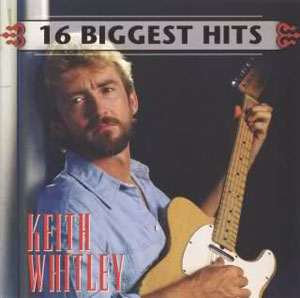
1. Keith Whitley: The Country Star Whose Light Went Out Too Soon
Oh, Keith Whitley. His story is one of those heart-wrenching “what if” moments that truly makes you pause. In the vibrant tapestry of 1980s country music, just as audiences were starting to tire of the prevailing country-pop sound, a new wave was emerging – the “new traditionalist” movement. This was a return to the roots, to the honky-tonk, and artists like Whitley were at its forefront, ready to lead the charge into a fresh era of authentic sound. He wasn’t just another voice; he was seen as a torchbearer, carrying the flame of pure honky-tonk in the vein of legends like Lefty Frizzell.
His star power, according to the records, was unequivocally “set to rise into the 1990s.” Imagine the impact he would have made, the countless hits he would have undoubtedly delivered, shaping the sound of country music for years to come. He was hitting his stride in the late ’80s, gaining significant traction and critical acclaim. The stage was set for him to become an enduring figure, a household name in country music and beyond, his soulful voice and traditional style resonating with millions who yearned for that authentic sound.
Tragically, just as his career was poised for an even greater ascent, fate intervened in the cruelest way. The context reveals a sobering truth: “however, Whitley was a known heavy drinker, and it was alcohol poisoning that ended his life in May 1989, just weeks after a song about triumph over personal demons – ‘I’m No Stranger to the Rain’—became a huge country hit.” It’s a devastating detail, highlighting the personal battles fought behind the scenes, and the heartbreaking reality that a talent so immense was lost far too soon.
That final hit, “I’m No Stranger to the Rain,” is a poignant reminder of his artistry and his struggles, a song about overcoming personal demons that, in hindsight, carries an even heavier weight. Keith Whitley didn’t just “fall off the map” due to changing tastes; his journey was tragically, irrevocably interrupted. He remains a beloved figure, a voice that continues to resonate, but the full potential of his ’80s ascent, and what it could have blossomed into in the ’90s, is one of the decade’s great musical losses. His legacy, though briefer than it should have been, is undeniable, marking him as a true “could have been huge” star.
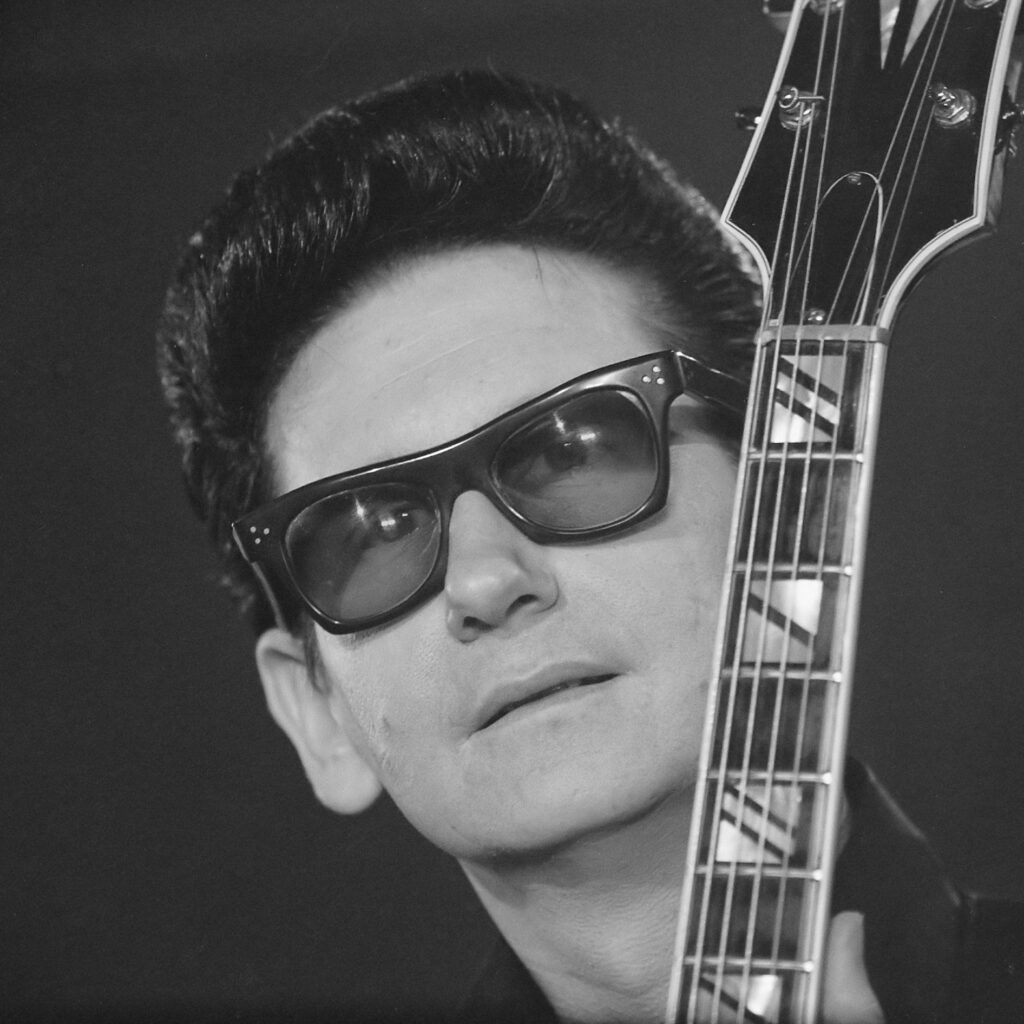
2. Roy Orbison: The Enduring Influencer Gone Too Soon
Now, here’s a name that conjures images of timeless ballads and a unique, often melancholic, vocal style. Roy Orbison wasn’t exactly an ’80s *newcomer* – he was a legend by then, a veteran whose influence stretched back decades. However, his story in the 1980s perfectly encapsulates the idea of a beloved “popular performer with many country music fans” whose style was so distinctive and enduring that it “wound up being influential with many newcomers.” He was a constant presence, a revered figure whose artistry continued to inspire, even as the music landscape shifted around him.
The decade saw his continued recognition, and his impact on “newcomers” suggests an ongoing relevance and an ability to bridge generations. He wasn’t chasing fleeting trends; he *was* a trendsetter, a foundational artist whose unique blend of rock and country-tinged pop resonated deeply. The ’80s were a period where his legacy was being cemented, where new audiences were discovering the power of his voice and songwriting, and where his presence was a comforting, influential anchor in an ever-shifting musical landscape. He had an undeniable gravitas that few could match.
Just like Keith Whitley, Orbison’s story is tinged with tragedy and a sense of unfulfilled continuity. The context states that he “died in 1988.” Imagine the further contributions he could have made, the continued influence he would have exerted, had his life not been cut short. His death, coming at a time when his unique style was still so potent and revered, left a gaping hole in the music world. He wasn’t just a singer; he was an institution, and his passing felt like the end of an era for many who adored his distinctive sound.
While he was already “huge” in terms of reputation, his passing meant that his trajectory as an ’80s star, influencing the next wave of musicians and delighting existing fans, abruptly halted. The potential for further ’80s and ’90s triumphs, building on his established influence, was lost. Roy Orbison’s departure in 1988 marks him as an ’80s star whose ongoing impact and potential for continued, towering greatness was tragically truncated, leaving us to wonder what more musical magic he would have woven had he been given more time.

3. The Who: A Legendary Rock Band That Burned Out (But Not Before Some ’80s Hits!)
Talk about a rock and roll institution! The Who had already carved out an indelible legacy long before the 1980s rolled around, defining a generation with their explosive live performances and groundbreaking albums. Yet, they continued to be a significant force *in* the ’80s, producing “hit songs ‘You Better You Bet’ and ‘Eminence Front’.” These weren’t just token releases; these were bona fide hits that resonated with audiences, proving that the veterans could still pack a punch and command attention on the charts. Their enduring appeal was evident, showcasing their ability to adapt, or at least maintain, their relevance in a new decade.
However, even for a band as legendary as The Who, the road through the 1980s wasn’t without its significant challenges, leading to a sense of a chapter closing rather than a new one fully opening. The context succinctly states that they “burned out after the death of their drummer Keith Moon.” While Moon’s untimely passing occurred in 1978, the lingering impact of such a colossal loss on the band’s dynamic and creative output clearly manifested in the subsequent decade. It’s tough to keep that fire burning when such an integral, irreplaceable part of your core is gone, and the ’80s saw them grappling with that immense void.
The phrase “burned out” isn’t just about losing steam; it suggests an exhaustion, a finality that precluded them from continuing their previous trajectory of unbridled innovation and consistent chart domination. Despite their ’80s hits, the band’s collective energy and prolific output that characterized their earlier decades seemed to diminish. They were undeniably ’80s stars, hitting the charts and touring, but the sparkle of their early days, the promise of endless evolution, was fading under the weight of their past and the immense shadow left by Moon.
So, while they gifted us with more memorable tracks in the 1980s, The Who ultimately didn’t maintain the “huge” status they once held, nor did they fully capitalize on the potential for continued groundbreaking work. They were a band that, despite their undeniable talent and a couple of great ’80s tracks, reached a point of exhaustion and decided to step back from their full-throttle artistic output. Their story is a powerful reminder that even the biggest legends can “burn out,” leaving us to appreciate the brilliant sparks they did offer in a decade that saw them winding down rather than gearing up for new heights.

4. Toni Basil: The Cheerleading Queen with Just One “Mickey
Oh, “Mickey”! You can almost hear the infectious beat and cheerleading chants just reading her name. Toni Basil was absolutely one of those unforgettable artists who, for a glorious moment in the 1980s, captured the entire world’s attention. The context tells us she “also had at least one big hit.” And what a hit it was! “Mickey” wasn’t just a song; it was a phenomenon, a vibrant, energetic track that dominated the airwaves and MTV with its iconic music video, making her an instant, albeit brief, sensation across the globe.
Her success with “Mickey” showcased incredible potential. The song was unbelievably catchy, the video was groundbreaking for its time, and she herself, with her unique background in choreography and performance, seemed poised for a multi-faceted career that could span music, dance, and film. When an artist achieves such widespread, instant recognition with “at least one big hit,” the expectation is often that this is just the beginning – the first step on a long, illustrious path to superstardom. The stage was set for her to follow up with more innovative music and videos, cementing her status as an ’80s icon.
However, despite that dazzling debut, Toni Basil’s musical career didn’t quite maintain the same trajectory. While “Mickey” remains a beloved ’80s classic, the context’s description of her having “at least one big hit” implies that sustained, chart-topping success on a similar scale didn’t follow. It’s a common tale in the fast-paced world of pop: immense talent, perfect timing, but the elusive combination needed for lasting chart dominance just didn’t coalesce for subsequent releases, leaving her as a bright, singular flash in the musical pan.
So, did Toni Basil “fall off the map”? In terms of sustained musical output and constant presence on the charts, compared to the likes of Madonna or Janet Jackson, one could certainly argue that her initial “huge” potential as a pop star wasn’t fully realized. She gave us an absolute bop that defines the era, a moment of pure ’80s magic. But after that one undeniable smash, her musical star dimmed, leaving us with a fantastic memory and the lingering question of what else she could have given us had her career continued its initial explosive ascent.
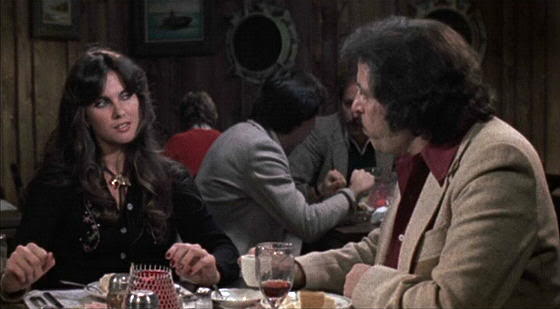
5. Michael Sembello: The “Maniac” Who Danced Away From Stardom
Another name that instantly transports you to the decade of big movies and even bigger soundtracks is Michael Sembello. His contribution to the 1980s music scene, as the context notes, was marked by “at least one big hit.” And for Sembello, that hit was none other than “Maniac,” the electrifying anthem from the iconic film “Flashdance.” This track wasn’t just a song; it was the pulse of a movie, a chart-topping sensation that captured the energetic spirit of the era and propelled him into the global spotlight, making everyone want to dance.
The immense popularity and critical success of “Maniac” signaled profound potential. It was a song that wasn’t just catchy; it had a powerful, driving rhythm and a captivating vocal performance that suggested a talent capable of delivering many more hits. When an artist achieves such a monumental “big hit” through a blockbuster film, the doors often swing wide open for a career defined by similar successes. The stage was set for Sembello to become a prominent fixture in pop music, building on his newfound fame and unique sound that perfectly fit the ’80s vibe.
However, much like many artists who found fame tied to a specific cultural moment, Michael Sembello’s follow-up efforts didn’t quite capture the same zeitgeist-defining magic. The context, by stating he “also had at least one big hit,” implies that while “Maniac” was a massive, undeniable triumph, it wasn’t followed by a sustained string of similar chart-toppers that would cement him as a long-term pop superstar. The competitive landscape of ’80s music was incredibly fierce, and maintaining that initial momentum was a challenge even for the most talented artists.
So, while “Maniac” remains an ’80s essential, a track that instantly brings back memories of leg warmers and dance dreams, Michael Sembello’s trajectory as a mainstream musical star didn’t quite reach the “huge” potential that his initial smash hit suggested. He gave us one of the most iconic songs of the decade, a piece of musical history that continues to ignite dance floors worldwide. But after that moment of unparalleled success, his name didn’t remain a constant presence on the charts, marking him as another artist who shined incredibly bright but eventually, in terms of mainstream visibility, “fell off the map.”

6. Matthew Wilder: Breaking Our Stride with Just One Big Hit
If you were alive and breathing in the 1980s, you couldn’t escape the irresistible groove of “Break My Stride.” Matthew Wilder, like so many other artists of the era, found himself catapulted into the limelight, as the context points out, with “at least one big hit.” “Break My Stride” was an absolute earworm, a feel-good anthem with a unique sound that blended pop sensibilities with a touch of new wave, making it a staple on radio stations and in dance clubs worldwide. It was a moment of undeniable pop perfection that made you want to get up and move.
The sheer ubiquity and catchiness of “Break My Stride” hinted at a burgeoning career, one where Wilder seemed primed to deliver a continuous stream of innovative pop hits. Achieving “at least one big hit” of that magnitude is no small feat; it signifies a powerful connection with the broader audience, a moment where an artist’s sound truly resonates. His distinct vocal style and production choices suggested an an artist with a clear vision, capable of crafting more tracks that would define the sound of the decade, making his potential seem boundless.
However, as often happens in the fast-paced world of pop music, the follow-up act proved to be a tougher challenge than the initial breakthrough. The context, simply stating that he “also had at least one big hit,” suggests that while “Break My Stride” was a monumental success, Matthew Wilder didn’t quite manage to sustain that level of mainstream visibility or chart performance with subsequent releases. The shifting landscape of ’80s music demanded constant reinvention, and not every artist could keep pace with the ever-evolving trends and preferences of the fickle public.
So, in the grand scheme of ’80s pop stardom, Matthew Wilder became one of those beloved figures who gave us an iconic, enduring hit, but whose overall musical career didn’t quite reach the “huge,” sustained heights predicted by his early success. “Break My Stride” remains a timeless classic, a testament to his talent and a quintessential piece of the ’80s soundtrack. Yet, his mainstream presence faded, making him a perfect example of an ’80s star who had a brilliant moment but, in terms of ongoing chart presence, seemingly “fell off the map.”

7. Kim Carnes: The Gravelly Voice Behind “Bette Davis Eyes”
You know that voice. That unmistakable, husky, gravelly voice that could only belong to one person, Kim Carnes. In 1981, she absolutely owned the airwaves with her colossal hit, “Bette Davis Eyes.” This track wasn’t just a song; it was a cultural moment, a mesmerizing blend of new wave synth-pop with a smoky, bluesy vocal that captivated audiences worldwide. It dominated the charts, earning her a Grammy Award and becoming one of the most iconic songs of the entire decade. Talk about making a grand entrance!
When “Bette Davis Eyes” exploded, it felt like Kim Carnes was destined for an enduring reign at the top. The song’s unique sound, her distinctive vocal delivery, and the striking imagery it evoked promised a long and illustrious career, brimming with more chart-topping gems. She had that intangible star quality, a blend of edge and allure that seemed perfectly suited for the evolving soundscape of the ’80s. Her potential seemed boundless, ready to unleash a string of hits that would solidify her as a permanent fixture in the pop firmament.
However, the fickle finger of pop music fame can be a tricky thing. While Kim Carnes continued to release music, the massive, zeitgeist-grabbing success of “Bette Davis Eyes” proved incredibly difficult to replicate. The context highlights that artists like her “also had at least one big hit,” underscoring the challenge of maintaining that initial momentum. Despite subsequent efforts, no other song quite captured the public’s imagination with the same force, leaving “Bette Davis Eyes” as her singular, towering masterpiece. Her musical star, in terms of consistent mainstream chart presence, eventually “fell off the map” after that one incredible, iconic moment, leaving us to cherish that unforgettable anthem.
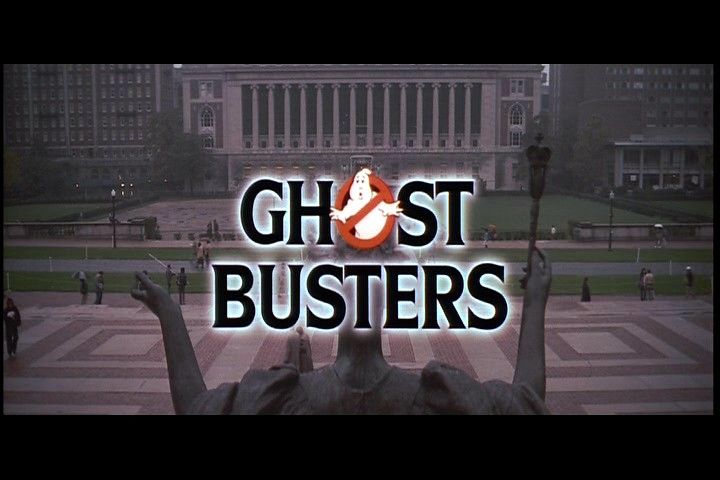
8. Ray Parker Jr.: Who You Gonna Call? Just for This One Hit!
Okay, real talk: can you even *think* about the 1980s without immediately humming the “Ghostbusters” theme? It’s impossible! Ray Parker Jr. etched his name into pop culture history with this absolute banger in 1984, which, as our context casually reminds us, meant he “also had at least one big hit.” And boy, was it big! The song was not just a smash single; it was the sonic heartbeat of one of the decade’s most beloved blockbusters, becoming an instant, undeniable global phenomenon that still gets parties started today.
The success of “Ghostbusters” was monumental, truly transcending just being a movie theme song. It was catchy, it was fun, and it perfectly encapsulated the playful, adventurous spirit of the film. For an artist like Ray Parker Jr., who had a background as a session guitarist and songwriter, this was his moment in the sun, a chance to solidify his own solo career and build on an undeniable, chart-topping hit. The world was his oyster, surely more cinematic anthems or pop smashes were just around the corner, right?
But, as the story often goes in the fast-paced world of ’80s music, follow-up acts can be incredibly tough, especially when you’ve delivered such an iconic, movie-tied masterpiece. While Ray Parker Jr. certainly continued to work in music, and had a respectable career, he didn’t quite maintain the same level of pervasive mainstream pop stardom that “Ghostbusters” hinted at. That one colossal hit became his signature, a double-edged sword that brought immense fame but also overshadowed subsequent solo endeavors. In terms of sustaining a consistent, high-profile presence on the pop charts after that global explosion, he largely “fell off the map,” leaving “Ghostbusters” as his unforgettable, singular contribution to ’80s pop.

9. Irene Cara: The Voice of “Fame” and “Flashdance”
Let’s talk about a voice that absolutely *defined* the early 1980s, a powerhouse who brought us some of the most inspirational and enduring anthems of the decade: Irene Cara. This incredible artist was not just a singer; she was a quadruple threat – singer, actress, dancer, and songwriter. The context explicitly highlights her monumental impact, stating that her electrifying “Flashdance… What a Feeling” was “the number one song worldwide in 1983, and for the decade of the 80s.” Yes, you read that right – *the* number one song of the entire decade!
Before “Flashdance,” Irene Cara had already captured hearts and minds as Coco Hernandez in the movie “Fame,” performing the titular hit song and “Out Here On My Own.” This dual success made her an undeniable force, an artist whose talent seemed boundless and whose trajectory was pointed firmly towards superstardom. With such a strong foundation in film and music, and delivering not one, but *two* iconic, Oscar-winning hits that became cultural touchstones, it felt like Irene Cara was set to become an unstoppable, multi-decade icon. Her ability to blend powerful vocals with emotive storytelling was truly captivating.
However, despite this incredible, undeniable start and her status as one of the decade’s most impactful artists, Irene Cara’s subsequent musical career, while respected, didn’t maintain the same stratospheric level of mainstream visibility. While she continued to release albums and act, that sustained, chart-topping presence that marked her early ’80s run became more elusive. The music industry is notoriously fickle, and even artists who deliver the biggest hits sometimes struggle to find the right follow-up. Her journey in the mainstream pop spotlight eventually “fell off the map” after those incredible, defining years.
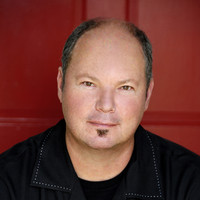
10. Christopher Cross: Smooth Sailing into the Sunset
Ah, Christopher Cross. Just hearing his name brings to mind images of sun-drenched beaches and smooth, easy-listening melodies. This incredibly talented singer-songwriter made a monumental splash right at the dawn of the 1980s, sweeping the Grammy Awards in 1981 and giving us those unforgettable hits like “Sailing” and “Arthur’s Theme (Best That You Can Do).” The context, again, reminds us of artists who “also had at least one big hit,” and for Cross, it was a string of them right out of the gate, defining a particular brand of sophisticated pop that resonated deeply.
His debut album was a phenomenon, making him the first artist in Grammy history to win all four general field awards (Record of the Year, Album of the Year, Song of the Year, and Best New Artist) in a single year. “Sailing” was an absolute masterpiece of laid-back pop, and “Arthur’s Theme,” from the Dudley Moore film, earned him an Academy Award for Best Original Song. With such an unprecedented and critically acclaimed start, it truly felt like Christopher Cross was set to become an enduring voice, a consistent presence on the adult contemporary and pop charts for decades.
However, despite his incredible initial success and critical acclaim, the rapid evolution of ’80s music meant that Christopher Cross’s particular brand of soft rock found it harder to compete for mainstream pop attention as the decade progressed. The shift towards more electronic dance music, glam metal, and hip-hop meant that the sounds dominating the airwaves were changing quickly. While he continued to release quality music and maintain a dedicated fanbase, his omnipresent chart presence from the early ’80s didn’t quite hold. His trajectory as a mainstream pop juggernaut, the kind that his early, record-breaking success promised, gradually “fell off the map” in terms of consistent chart-topping hits.

11. Bobby McFerrin: The Joyful Genius Behind “Don’t Worry Be Happy”
You can’t help but smile when you think of this next artist, can you? Bobby McFerrin, the absolute genius behind the undeniably joyful and groundbreaking hit “Don’t Worry Be Happy,” brought a burst of pure, unadulterated positivity to the tail end of the 1980s. The context includes him in the list of artists who “also had at least one big hit,” and what a hit it was! Released in 1988, this a cappella masterpiece became a global sensation, topping charts everywhere and becoming an instant anthem of optimism.
“Don’t Worry Be Happy” wasn’t just a catchy tune; it was a revolutionary piece of music. Entirely performed by McFerrin himself, using only his voice and body percussion, it showcased his extraordinary vocal talents and innovative approach to music. This unique artistry, coupled with the song’s incredibly infectious melody and uplifting message, seemed to position him as a truly innovative and potentially long-lasting pop star. It felt like the world was ready for more of his playful, inventive, and utterly brilliant musical creations, promising a string of unique hits.
However, despite the immense, undeniable success and critical acclaim of “Don’t Worry Be Happy,” Bobby McFerrin’s mainstream pop career, as measured by subsequent chart-topping singles, didn’t maintain the same trajectory. While he continued to have an incredibly distinguished career in jazz, classical, and experimental music, captivating audiences with his improvisational genius and vocal acrobatics, he didn’t produce another pop hit of “Don’t Worry Be Happy’s” magnitude. He became more of an artist’s artist, revered in musical circles, rather than a consistent pop chart presence, ultimately “falling off the map” in terms of mainstream pop.

12. Martika: The Teen Star Whose “Soldiers” Marched Away
Rounding out our list is an artist who captured the hearts of many in the late 1980s with a surprisingly poignant and impactful hit: Martika. Bursting onto the scene, she quickly became a teen idol, and as our context notes, she was among the “American artists such as … Martika … also had at least one big hit.” For Martika, that hit was the hauntingly beautiful “Toy Soldiers” in 1989, a song that stood out with its mature themes and catchy, yet melancholic, melody.
“Toy Soldiers” was more than just a pop song; it was a powerful statement about addiction and childhood struggles, delivered with a pop sensibility that made it accessible to a wide audience. Its success was massive, propelling Martika into the global spotlight and showcasing her potential as a serious artist who could blend meaningful lyrics with infectious hooks. Coming at the very end of the decade, it felt like she was perfectly positioned to carry her unique sound and thoughtful approach into the 1990s, becoming an enduring voice for a new generation of pop fans.
However, despite that impressive start and the undeniable impact of “Toy Soldiers,” Martika’s subsequent mainstream pop career didn’t quite maintain the same trajectory. While she continued to evolve as an artist and explore different musical avenues, that intense, widespread popularity and consistent chart presence she enjoyed with her debut era proved difficult to sustain. The early ’90s saw a shift in pop music trends, and for many artists who peaked in the late ’80s, maintaining relevance became a considerable challenge, leading her to “fall off the map” as a mainstream pop sensation.
And there you have it, a heartfelt, nostalgic journey through the compelling stories of 12 artists and bands who, in their own unique ways, left an undeniable imprint on the sensational soundscape of the 1980s. From tragic turns that silenced rising stars too soon, to the irresistible allure of a single, iconic hit that defined a moment, these musicians truly captivated us. They may not have maintained perpetual chart dominance, but their contributions — those unforgettable melodies, those powerful lyrics, those electrifying performances — continue to echo through the decades, reminding us of the incredible talent that flourished, however briefly, in that glorious era. So, crank up those classic ’80s tunes, celebrate the legends who kept soaring, and give a knowing nod to these brilliant stars who, for a shining moment, proved they could have been huge. Their music lives on, a vibrant, sparkling testament to the unforgettable magic of the ’80s.


